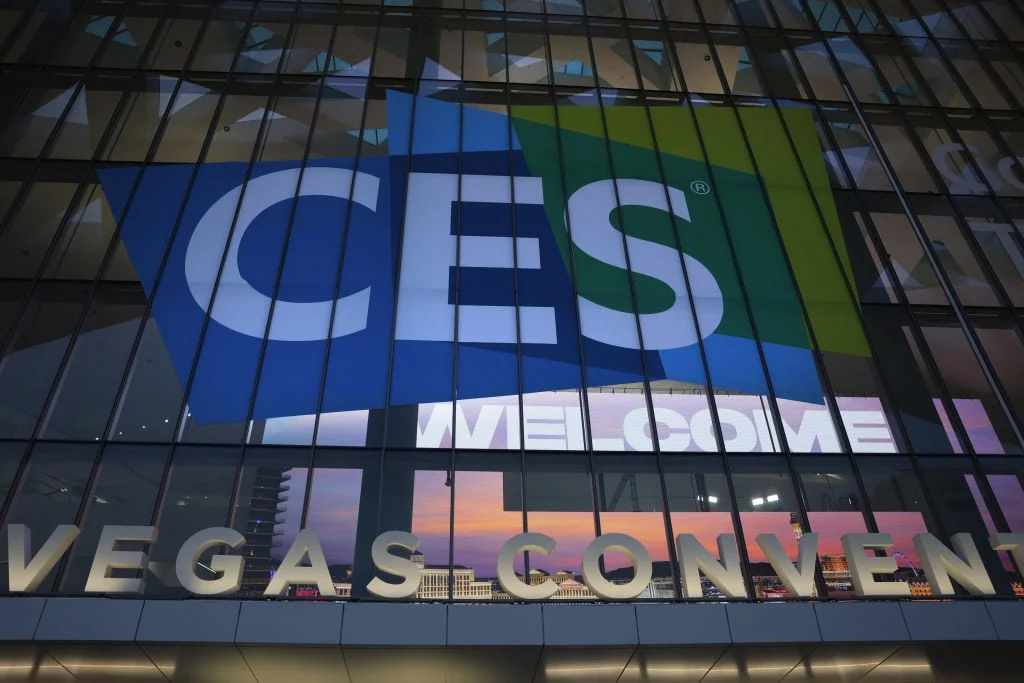
Tech manufacturers are showing baby wearables, e-ink cars and humanoid robots in Las Vegas. Also: US investor Battery Ventures acquires fleet management startups Vimcar and Avrios and further layoffs in the crypto industry.
Good morning! While you slept, work continued elsewhere in the digital scene.
The top topics:
On the opening day of the “Consumer Electronics Show” (CES) in Las Vegas, technology manufacturers from all over the world presented their innovations. After a two-year Corona break, visitors to the fair can explore the latest innovations in high-tech, artificial intelligence and metaverse until Sunday. Brand new televisions, light, powerful notebooks and smart home innovations will be there. But also rather unusual gadgets are shown: Halo has presented a wearable for babies that tracks heart rate, rollover, skin temperature and movement. Aeolus Robotics brings his humanoid robot Aeo to help in schools and hospitals by disinfecting, delivering groceries and conducting rounds. Withings introduces U-Scan, a private urine laboratory that provides nutritional and metabolic information and pH data when going to the toilet.
Car manufacturers also use CES to promote their innovative technologies. So posed BMW with the i Vision Dee a new concept car. Its outer skin can be transformed into 32 different colors at any time using so-called e-ink technology. Sony and Honda are working together under the new brand “Afeela” on an electric car that can supposedly be ordered from 2025. Sony wants to use its expertise in artificial intelligence, entertainment and camera sensors. As was announced on the sidelines of the fair, invested Mercedes-Benz half a billion euros in a fast-charging network in order to gain better access to the electric car market. [Mehr bei Techcrunch, Axios und Autobild]
On the founding scene: Almost half of all startups touch down Bootstrapping. If you don’t have investors behind you, you don’t have to give up any percentage, you have more freedom to make decisions and you signal: I can do it on my own! But there are downsides, as our author Joel Tecle knows. He is building the startup together with his sister Luwam Tecle-Debesay Backhelden up, just with your own money. [Mehr bei Gründerszene+]
And here are the other headlines of the night:
The US investor Battery Ventures takes over the Berlin startup Vimkar as well as the company Avrios from Zurich and merged them. The purchase price for the two startups specializing in fleet management is said to be around 200 million US dollars. Vimcar founder Andreas Schneider told the Handelsblatt: “In the medium term, a European market leader should emerge.” Webfleet as the largest European provider. Vimcar offers software solutions for fleet management, while Avrios specializes in cost management and document management. [Mehr bei Handelsblatt]
redundancies: Genesis, a crypto lender, will cut 60 jobs, or 30 percent of its workforce, to save and stave off a bankruptcy filing. Genesis was created by the collapse of the crypto exchange FTX hit hard. Genesis had laid off 20 percent of its workforce by 2022. Stitch Fix also wants to cut 20 percent of its employees. Founder Katrina Lake also announced that she will be resuming her role as CEO and current CEO, Elizabeth Spaulding, is stepping down, effective immediately. Stitch Fix, which sells curated clothing boxes on a subscription basis, has grown strongly during the pandemic but is currently struggling with low sales and a dwindling customer base. [Mehr bei CNBC, Axios und CNBC]
OpenAI, the artificial intelligence research lab behind chatbot ChatGP, is in talks to sell existing shares in a takeover bid, according to the Wall Street Journal. The company would be valued at around $29 billion. The report added that the deal is structured so that venture capital firms Thrive Capital and Founders Fund will buy shares from existing shareholders. It said the deal would attract at least $300 million in equity sales. [Mehr bei The Information, Reuters und Wall Street Journal]
Samsung announced that its quarterly profit fell by two-thirds to an eight-year low. The South Korean company said its October-December operating profit is likely to have fallen 69 percent year-on-year to $3.37 billion. It was the lowest quarterly profit since the third quarter of 2014 and fell short of analysts’ estimates. [Mehr bei Reuters]
Apple-In addition to China, suppliers are increasingly turning to India as a location for iPhone production. As the “Handelsblatt” reports, the iPhone manufacturers Foxconn, Wistron and Pegatron as well as component suppliers such as Sunwoda, Avary, Foxlink and Salcomp have created a total of almost 50,000 direct jobs and an estimated 100,000 indirect jobs in India since August 2021. Foxconn, Wistron and Pegatron manufacture iPhones in India for export and the domestic market. Most Apple products are currently made in China. [Mehr bei Handelsblatt]
Our reading tip on Gründerszene: Almost no more meetings: Because Shopify lost more than 70 billion US dollars in market value last year, founder Tobi Lütke is now trimming his company for efficiency. [Mehr bei Gründerszene]
Don’t want to miss anything? Then subscribe to our Gründerszene newsletter! It appears every morning at 8:30 a.m. and brings you all the important news straight to your inbox.
Happy Friday!
Your Gründerszene editors
Source: https://www.businessinsider.de/gruenderszene/business/ces-2023-das-sind-die-aussergewoehnlichsten-gadgets/


